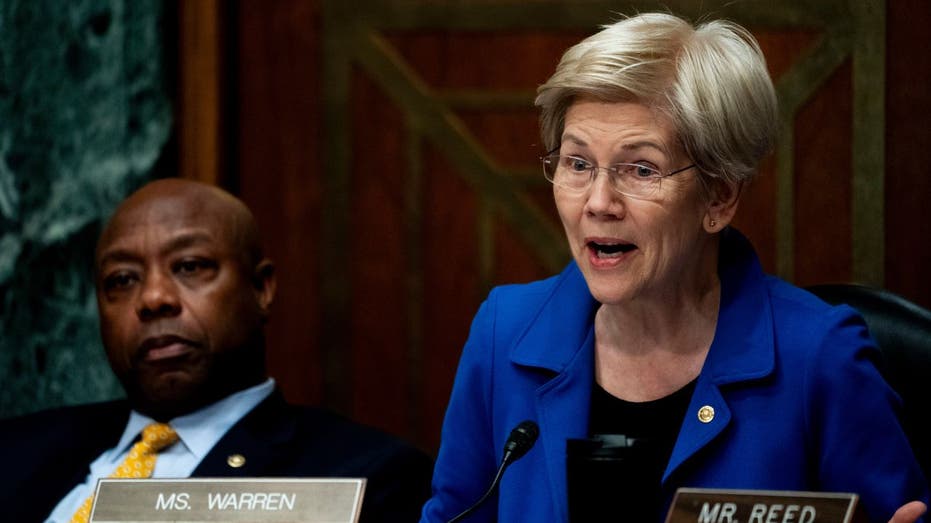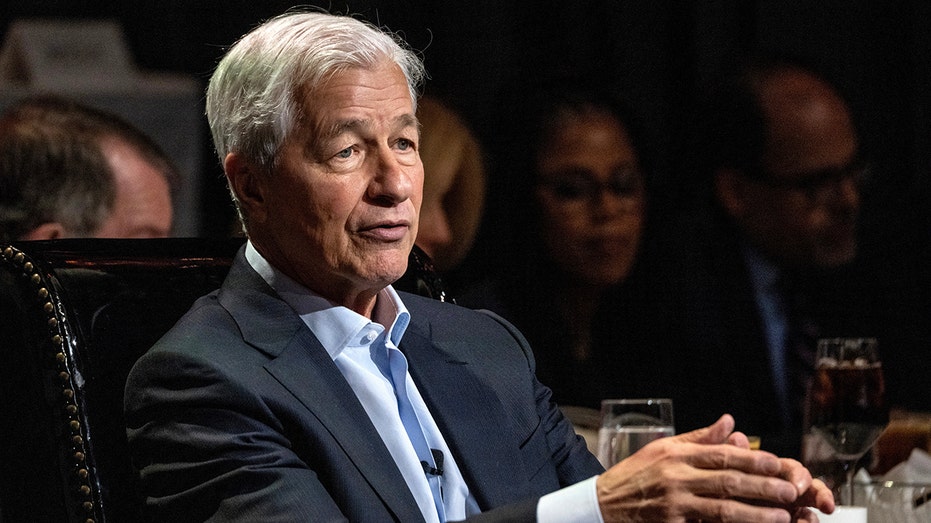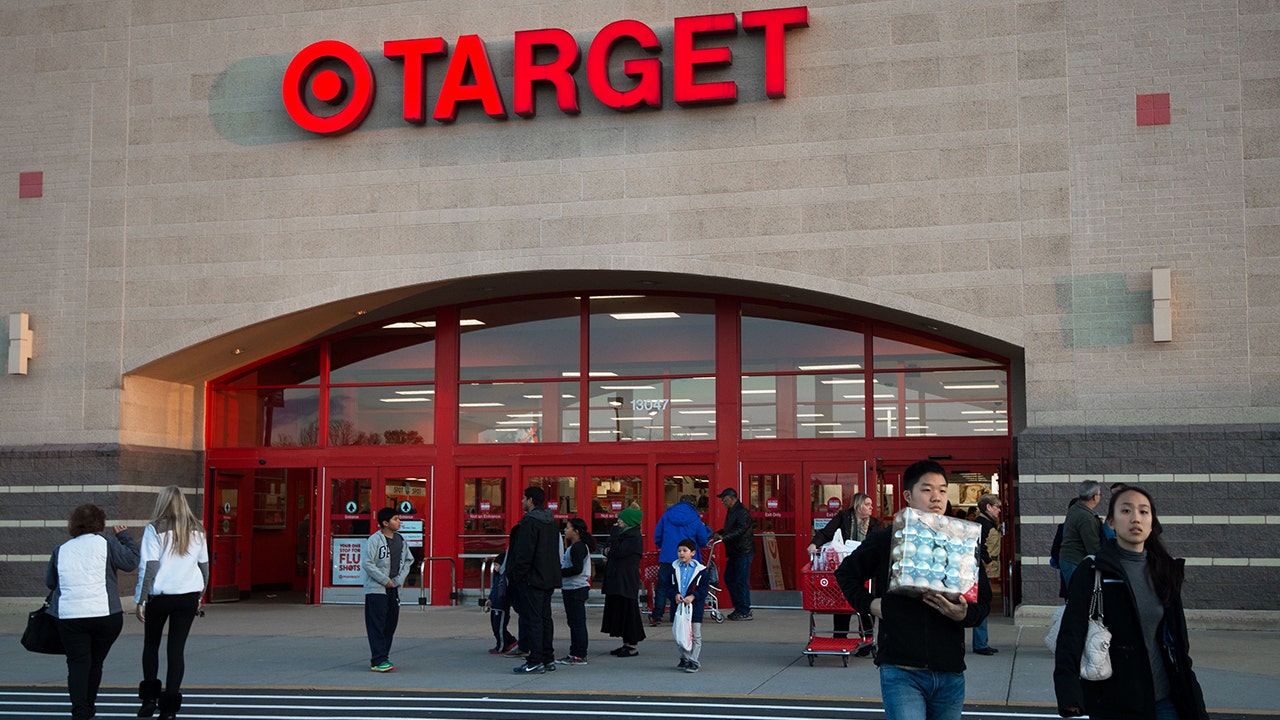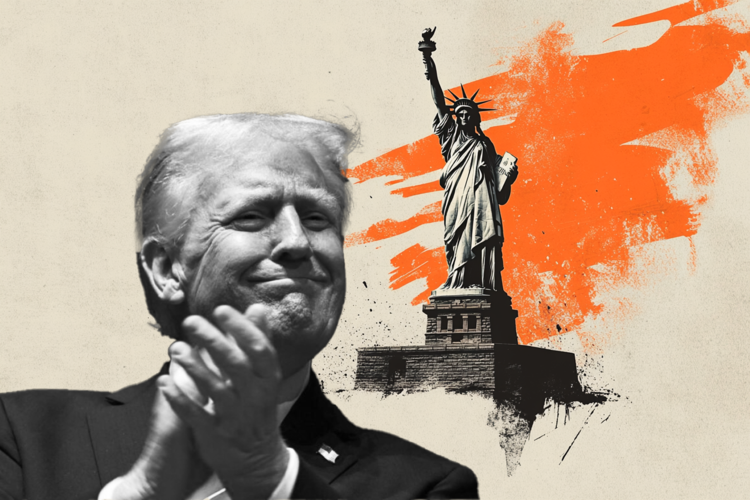The Senate Banking Committee on Wednesday held a hearing on debanking in the financial services industry amid challenges facing businesses in the crypto and cannabis industries as well as politically motivated debanking of other customers.
Federal laws and financial regulations require institutions in the banking industry to close accounts over concerns about things like money laundering or illicit financial activities and concerns over reputational risk.
Uncertainty surrounding emerging industries that have unclear regulatory frameworks, such as digital assets like crypto or cannabis businesses in states with legal marijuana, have contributed to debanking, while regulatory guidelines have also resulted in firearm makers and dealers being debanked.
Lawmakers from both sides of the aisle raised concerns about debanking and argued that there should be more regulatory clarity to prevent such incidents from happening without explanation.
TRUMP’S DAVOS COMMENTS REIGNITE DEBANKING CONTROVERSY
Senate Banking Committee Chair Tim Scott, R-S.C., said that it’s “incredibly alarming and disheartening to hear stories about financial institutions cutting off services to digital asset firms, political figures and conservative-aligned businesses and individuals.”
“This issue should concern every single American, regardless of political affiliation, and that’s why I’m committed to a bipartisan solution to stop this form of discrimination,” Scott added. “The message is crystal clear: No regulator and no bank is above the principles of fairness and market access.”
Senate Banking Committee ranking member Elizabeth Warren, D-Mass., noted that debanking at one institution can cause a chain reaction that leaves the customer unable to access financial services at other institutions.
“Once the bank shuts someone out, the bank may share that information with companies that get paid to maintain a ‘do not bank’ list with the result that the customer is blacklisted everywhere,” Warren said. “People shouldn’t be arbitrarily denied access to their banks, locked out of their accounts or stripped of their banking privileges.”
TRUMP CONFRONTS BANK OF AMERICA CEO FOR NOT TAKING ‘CONSERVATIVE BUSINESS’
Warren said her staff identified 11,955 complaints from customers who were debanked in the past three years, with many reporting they received no warning or explanation and didn’t have an opportunity to dispute or appeal the decisions.
She said four banks – JPMorgan Chase, Bank of America, Wells Fargo and Citi – account for half of all debanking complaints. Those are the four largest commercial banks in the U.S., according to Federal Reserve data.

The committee heard testimony from four witnesses: Nathan McCauley, CEO and co-founder of Anchorage Digital; Stephen Gannon, partner at Davis Wright Tremaine LLP; Mike Ring, CEO and co-founder of Old Glory Bank; and Aaron Klein, senior fellow in economic studies at the Brookings Institution.
HOUSE OVERSIGHT CHAIR: BANKS WILL FACE ‘A LOT OF QUESTIONS’ OVER ALLEGED DEBANKING OF CONSERVATIVES
McCauley, whose firm is a crypto bank that received a federal charter in 2021, said that in 2023 a partner bank where the firm held corporate accounts for two and a half years told them they would close their accounts in 30 days. The reason given was because the bank was uncomfortable with crypto clients, and the decision was made without offering Anchorage an opportunity to talk to the bank’s risk management team.
“Why did this happen? I believe that regulators pressured banks to shut an entire industry out of the federal banking system,” McCauley said. He added that while Anchorage eventually found a new home for the bank, the “impact of nearly being shut out of the banking system was devastating.”
“It was extremely disruptive to our business and our clients and contributed to the very difficult decision to lay off 70 employees here in the United States, about 20% of our staff. To this day, our clients lack the ability to send wire transfers to third parties,” he added. “The irony of having trouble accessing the federal bank system, despite the fact that we ourselves are a federally chartered bank, cannot be overstated.”

Klein explained during the hearing that while reputational risks and the preservation of consumer trust is vital for banks, there may be a need for safeguards to prevent them being abused and used as a reason to end client relationships.
“Trust is the cornerstone of all banks,” Klein said. “Consumers trust that the banks have their money, and when a bank loses trust, it has the possibility to have a run on it. So the need to consider reputational risk is real and it is important. It is possible that it is abused, and you need to have guardrails on it. But it is absolutely a certain and important part of bank regulation and supervision.”
Debanking incidents have prompted accusations that financial institutions are cutting certain clients loose for political or ideological reasons.
Bank of America and JPMorgan Chase have denied that politics contributed to debanking decisions. JPMorgan Chase CEO Jamie Dimon recently said there should be better guidance for banks about how to handle such situations.
“I think we should be allowed to tell you. … When we report stuff, the federal government should probably know about it, and there should be far cleaner lines about what we have to do and what we don’t have to do,” Dimon said in January on the bank’s “The Unshakeables” podcast. “We’ve been complaining about this for years. We need to fix it.”
Read the full article here
















